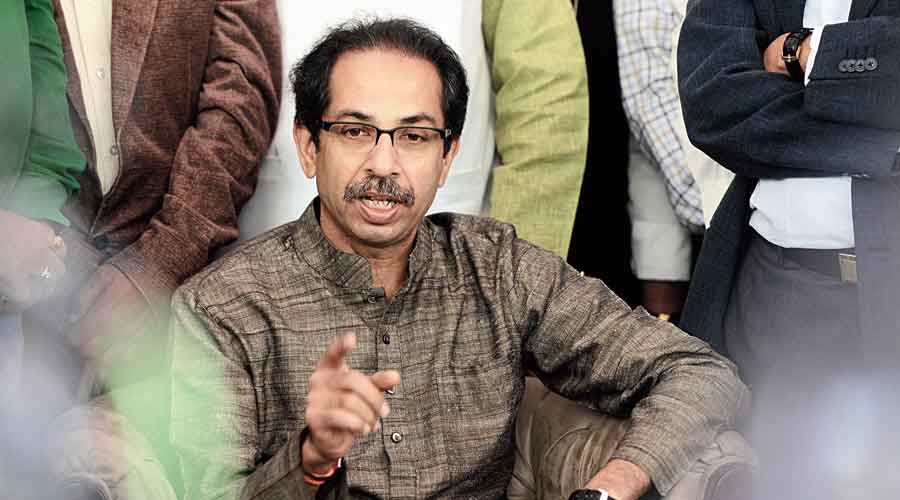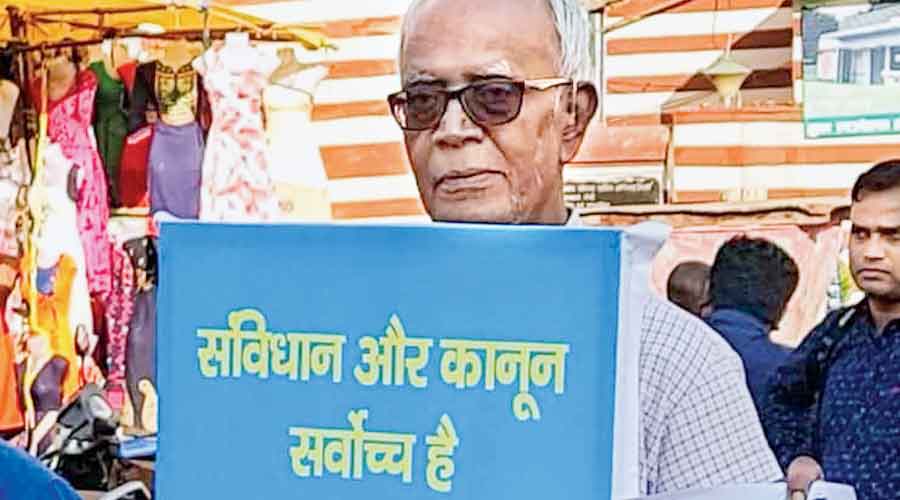The tragic death of 84-year-old tribal rights defender Father Stan Swamy has brought the politics behind the Elgar Parishad case into focus as many politicians, activists and intellectuals condemned it as “murder” by State.
The Narendra Modi government had abruptly transferred the case to the National Investigation Agency (NIA) as soon as the new Shiv Sena-NCP-Congress government in Maharashtra declared its intention to review it. Ironically, the previous state government led by the BJP’s Devendra Fadnavis and the Centre had vehemently opposed the plea in the Supreme Court to transfer the case to the NIA.
The somersault of the Modi government came when the Congress and the NCP openly campaigned for review of the Elgar Parishad case, describing it as a BJP conspiracy. NCP veteran Sharad Pawar wrote to chief minister Uddhav Thackeray suggesting a special investigation team be set up to examine the case in the wake of allegations that Pune police had cooked up evidence to frame activists critical of the RSS-BJP. The activists were accused of plotting the assassination of Prime Minister Modi.
The Congress and NCP had even publicly objected to Uddhav’s decision to give consent to the NIA to take over the case. The then Maharashtra home minister Anil Deshmukh said in public the chief minister overruled him as the Congress-NCP wanted to resist the attempt of NIA’s intervention by moving court.
The NIA takeover dashed the hopes of the arrested activists who had thought the change of regime in the state would facilitate delivery of justice. In fact, two arrested persons — criminal lawyer Surendra Gadling and poet Sudhir Dhawale — even moved Bombay High Court, challenging the case being transferred to the NIA in February this year, arguing that the decision was politically motivated.
The plea cited a petition filed by historian Romila Thapar, economist Prabhat Patnaik and other intellectuals before the Supreme Court in August 2018, where the Centre had defended the role of Pune police in the investigation.
Thapar’s petition had argued that a case involving a plot to assassinate the Prime Minister and the accused from so many states required an investigation by a central agency like the NIA or CBI.
Solicitor-general Tushar Mehta, appearing for the Fadnavis government, fiercely opposed the demand, saying the court should be loath to entertain a writ petition of this nature when the investigation of a serious crime was in progress according to statutory provisions. Mehta submitted that the investigation was being conducted responsibly and impartially and strictly in accordance with the law.
Another top lawyer, Harish Salve, appearing for the complainant (who filed the FIR), argued that the court must enquire whether the investigation was regarding such unlawful activity or was merely to stifle dissenting political voices. “If it is the former, the investigation must be allowed to proceed unhindered,” he said.
He added that the court must lean in favour of appointing an SIT or an independent investigating agency only when the grievance made is one about the investigation being derailed or being influenced by some authority.
After such illuminating arguments on behalf of the Centre and the BJP government in Maharashtra, the home ministry’s inexplicable decision to suddenly transfer the case to the NIA after the BJP was ousted from the state was bound to attract criticism.
Former Union minister Jairam Ramesh tweeted on Monday: “Who in the apparatus of the Indian state will be held responsible for this tragedy? Make no mistake — it is the Indian state that killed Fr Stan Swamy, who was such a passionate crusader for social justice.”
Rahul Gandhi tweeted: “Heartfelt condolences on the passing of Father Stan Swamy. He deserved justice and humaneness.”
While Pune police had already filed a chargesheet in the case, followed by a supplementary chargesheet, the Centre didn’t think between 2018 and 2020 that the NIA’s intervention was needed.
The NIA dealt with the activists, who had no criminal record, without any compassion, so much so that Fr Stan, a Parkinson’s disease patient, had to move court to be allowed a straw and a sipper. Fr Stan’s bail plea was forcefully opposed by the NIA despite his serious illness. Yet, it did not seek his custody for interrogation, asking him to be sent to judicial custody.


